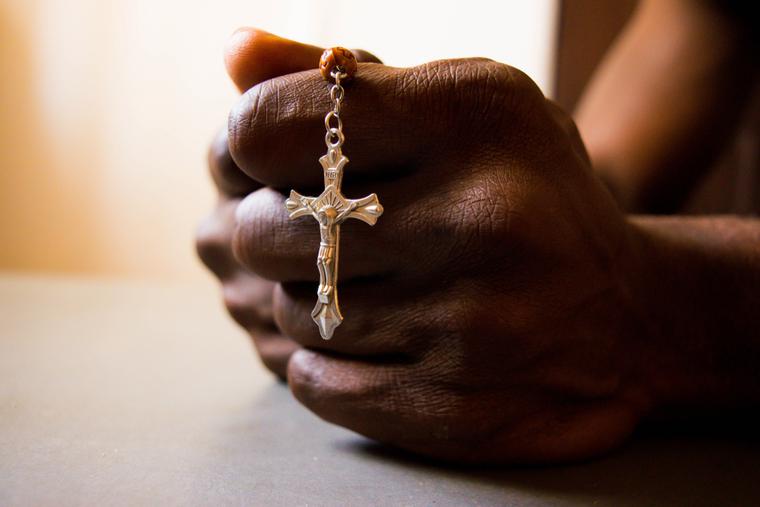Ireland’s President Condemns Catholic Church Massacre in Nigeria
Ireland has deep connections with Nigeria, thanks to the efforts of Irish Catholic missionaries.

The president of Ireland on Tuesday condemned a deadly attack at a Catholic church in Nigeria on Pentecost Sunday.
Michael D. Higgins deplored the massacre in a June 7 statement, saying “that such an attack was made in a place of worship is a source of particular condemnation, as is any attempt to scapegoat pastoral peoples who are among the foremost victims of the consequences of climate change.”
Alluding to deadly clashes between farmers and nomadic pastoralists in the West African country, he added: “The neglect of food security issues in Africa, for so long has brought us to a point of crisis that is now having internal and regional effects based on struggles, ways of life themselves.”
“The solidarity of us all, as peoples of the world, is owed to all those impacted not only by this horrible event but in the struggle by the most vulnerable on whom the consequences of climate change have been inflicted.”
The Irish president spoke out days after the Catholic charity Aid to the Church in Need appealed to world leaders to denounce the attack.
Ireland has deep connections with Nigeria, thanks to the efforts of Irish Catholic missionaries. The two nations share a patron saint, St. Patrick, and there is a Nigerian community in Ireland.
In an attack on June 5, unidentified gunmen opened fire on Catholic worshipers attending Pentecost celebrations at St. Francis Xavier Catholic Church in Owo, Ondo State, in southwestern Nigeria.
Initial reports suggested that more than 50 people were killed, including children, and others injured. Reuters reported on June 6 that there was no official death toll.
The local Catholic Diocese of Ondo told the Associated Press on June 7 that at least 38 people, including five children, were killed in the attack, with likely more casualties still unaccounted for.
Bishop Jude Ayodeji Arogundade of Ondo told Vatican News that a number of the injured were still waiting to receive medical treatment, while 80 to 90 victims were now in stable condition.
He expressed his sorrow for the many men, women, and children who lost their lives, including the parents of a seminarian of the diocese.
“For some people who think that they want to match our goodness with their own evil, they shouldn’t forget that good will always triumph, the light will always triumph over darkness,” Arogundade said.
“Our people are a people of faith,” he added. “They are still calling on God, on the name of God. Some will tell you that it could have been worse if not for God.”
Other countries have also spoken out against the June 5 massacre.
France’s Ministry of Europe and Foreign Affairs said that the country condemned the massacre “in the strongest terms.”
“France offers its condolences to the families and loved ones of the victims of this heinous crime. It wishes a speedy recovery to those injured,” it said, calling for the perpetrators to be identified and brought to justice.
The Archbishop of Canterbury, Justin Welby, the spiritual head of the worldwide Anglican Communion, wrote a condolence message on his Facebook page, assuring victims of his prayers.
Nigeria’s President Muhammadu Buhari condemned the “dastardly act,” saying that “only fiends from the nether region” could have carried out the attack.
Pope Francis has also expressed his sorrow in the wake of what he called “unspeakable violence.” He said that he was praying for the victims and the attackers’ conversion.















